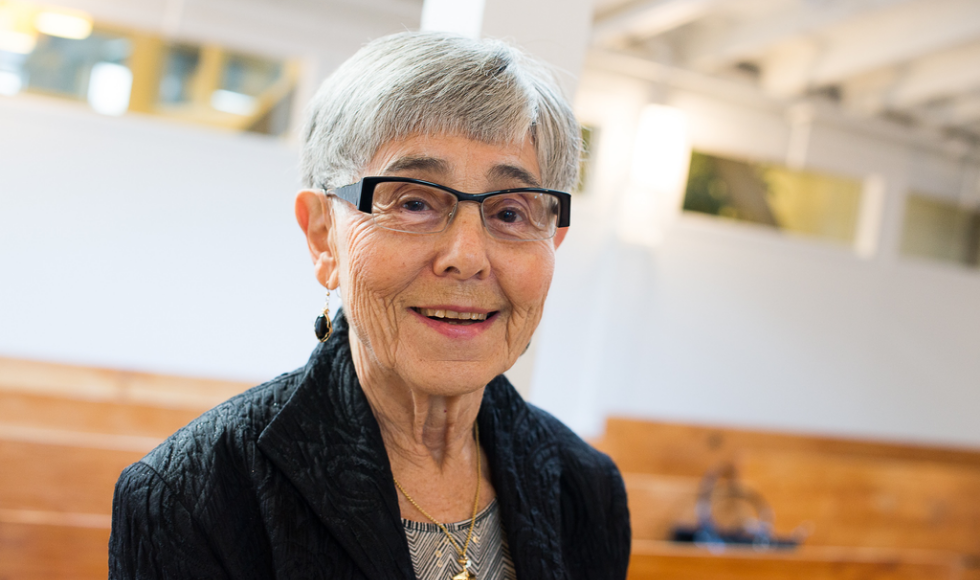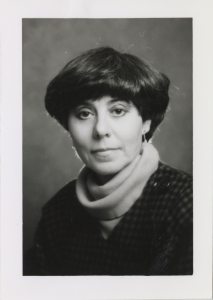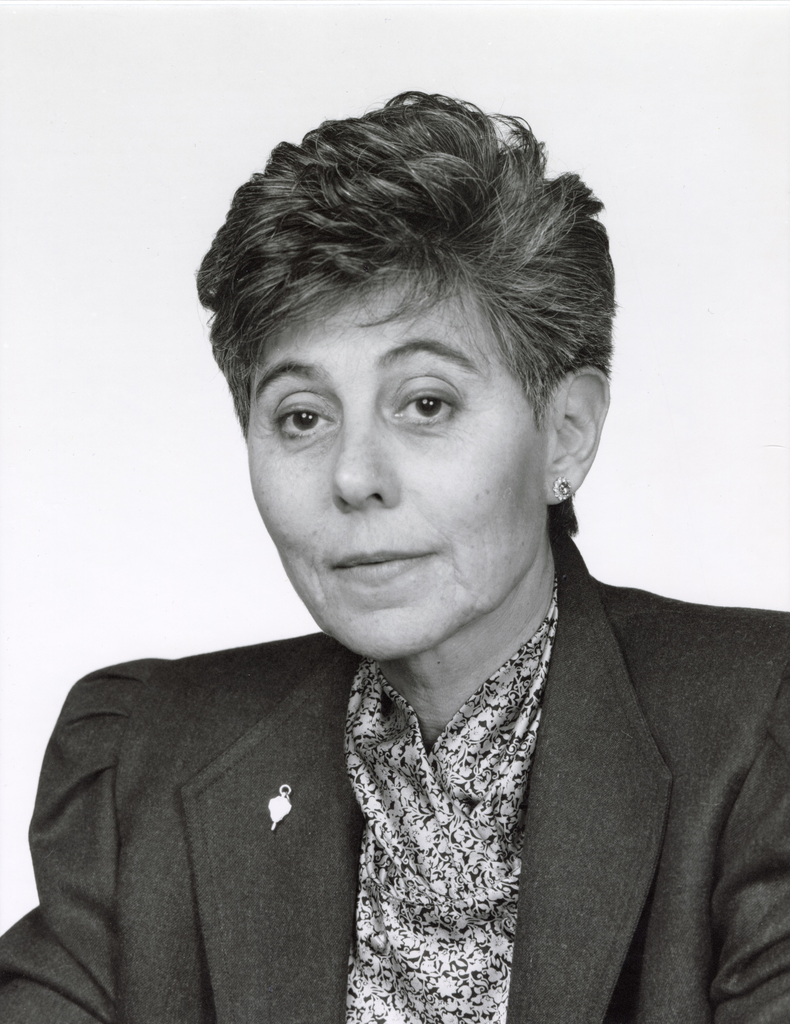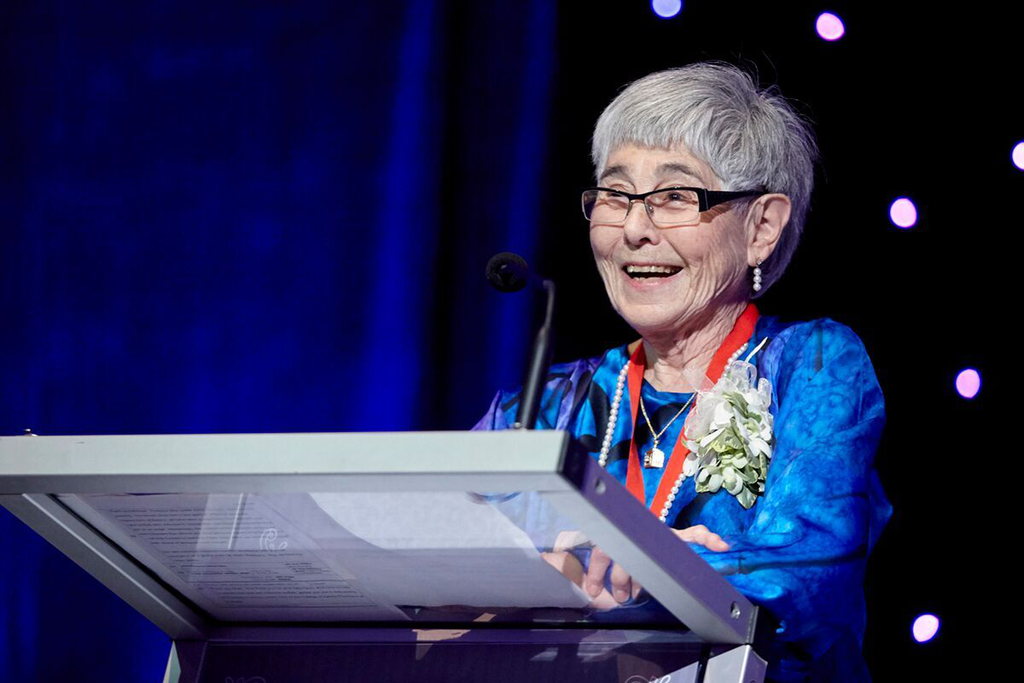May Cohen, a pioneering doctor for women’s rights, donates her papers to McMaster

Retired physician May Cohen, who spent her career fighting for women's rights, has donated her documents to McMaster’s Health Sciences Archives in the hopes it will serve inspiration for those fighting for gender equality today.
As a young medical student, May Cohen often felt invisible, thanks in part to a professor who addressed the class as “gentlemen,” and a dean who suggested the students shave and wear ties.
Everyday sexism was a fact of life for female medical students in the 1950s, but it spurred Cohen to lead a revolution in Canadian medical care, pushing women’s health to the forefront — from the doctor’s office to the halls of Parliament. She also founded the Women’s Health Office at McMaster University, the first of its kind in Canada.
Nearly 70 years later, the 90-year-old retired physician has donated boxloads of her documents to McMaster’s Health Sciences Archives (HSA), a department of the Health Sciences Library. It will be a resource for future generations, whom Cohen hopes will finish what she started.
“I want the current generation of medical students to believe very strongly in equality, inclusiveness and diversity. Secondly, I want them to be very good physicians who can establish their credibility,” said Cohen, a professor emerita of family medicine at McMaster.
Cohen joined McMaster in 1977 and retired in 1996. She was inducted into the Canadian Medical Hall of Fame in 2016 and awarded the Order of Canada the following year.
Cohen’s parents were social activist leaders and engaged in their community. They instilled in her a desire to improve the conditions for all those suffering from discrimination and inequity.
As a young physician, she learned the complex nature of the human spirit from patients attending her family practice in Toronto’s Bathurst Manor neighbourhood, many of whom were Holocaust survivors.

In their practice together, May and her physician husband Gerald (Gerry) Cohen noticed these patients often suffered post-traumatic stress disorder from their time in the concentration camps and ghettos, as well as the after-effects of starvation and poorly healed fractures.
“I could not imagine how anyone could survive that trauma and loss. Their resilience was incredible,” said Cohen, who is herself Jewish. “Nevertheless, I enjoyed a wonderful and loving relationship with all my neighbourhood patients.”
Abortion was illegal in Canada under any circumstance until 1969, when the law was changed to allow the procedure if a panel of three hospital doctors unanimously agreed to allow it.
However, hospitals were not obliged to have panels and when Cohen chaired one in Toronto, management warned her that abortions would only be allowed for girls under 12 who had been raped and women over 45 with hypertension.
“That left us a bit of a grey area,” Cohen said dryly. “You really had to keep your temper in check.”
And abortion restrictions could be lethal: Cohen recalled a female patient who died in the emergency room after undergoing an illegal abortion. Her panel quietly pushed back, approving a handful of abortions for women in the 12-45 age bracket. This spurred Cohen to start campaigning for legalizing abortion.
In the donated files is a strongly worded 1978 letter from her to Stuart Smith, then leader of Ontario’s Liberal Party. It was regarding Bill 139, which imposed how physicians should counsel patients requesting an abortion. Furthermore, if doctors determined that a foetus could potentially live outside the womb, they were obliged to keep it alive.
“It seeks to achieve this purpose by the imposition of inexcusable red tape and punitive cruelty on women in these circumstances,” wrote Cohen.
“As a physician I also object to the fact that passage of this bill would give government the right to dictate to me how I should deal with my patient’s health problems. Specifically, this bill would tell me how I must counsel my patient and how to deal with her regardless of her particular needs. Passage of such a provision would constitute a dangerous precedent.”
In 1977, the Cohens moved from their Toronto family practice to become full-time faculty members at McMaster’s newly established Faculty of Health Sciences. There, they were pioneers in teaching medical students and family physicians about healthy sexual practices and eliminating sexual taboos and gender stereotyping.
Throughout the 1970s and 1980s, Cohen was not afraid to call out those who blocked reforms, be they politicians, religious clergy, or even businesses who caved into anti-abortionists’ demands.
One reply Cohen received from Fisher-Price Toys, received in 1984 and preserved in her archive, read that its decision to halt advertising in Homemaker’s Magazine was in no way related to the publication’s pro-choice stance. The magazine had come under attack from anti-abortion activists that targeted its advertisers.
“Our selection of media is solely a function of the efficacy with which we can deliver that message and is no way related to the editorial position of a particular publication or broadcast station,” wrote Fisher-Price’s then-president Bruce Sampsell.
That same year, Cohen branded the CBC’s refusal to broadcast the film Abortion: Stories from North and South as “truly disgraceful,” in a strongly worded letter to the broadcaster, again preserved in her archive.
“I also find the excuse that the film violates the network’s policies of balance of fairness rather ludicrous,” Cohen wrote in her letter.
“After all, it is not quite two months since the CBC devoted an incredible number of hours to cover the visit of the Pope. I do not recall the network demanding balance and fairness in countering his stand on the question of birth control, abortion and women’s rights in general.”
In 1988 the Supreme Court struck down all laws regarding abortion as unconstitutional, and since then, abortion can be carried out at any stage of a pregnancy and is a publicly funded procedure under the Canada Health Act. However, Cohen said the struggle for equal access and rights goes on.
In Canada, the struggle today is mostly ensuring women primarily in rural or remote regions have easy access to abortion services, Cohen said, adding that while most people continue to support abortion rights, some conservative politicians remain opposed and in 1994 a Canadian doctor providing abortions was injured by a sniper.
South of the border, a coalition of conservative politicians, supreme court judges and religious organizations is on the cusp of overturning Roe v. Wade, the landmark ruling that legalized abortion nationwide in the United States nearly 50 years ago. American abortion clinics have also faced bombing and shooting attacks.
“There really is a backlash, especially in the United States, where the anti-abortion movement has never given up,” said Cohen. “It is really an anti-women movement.”
Fighting sexism in medicine
Another key plank of Cohen’s revolution was – and still is – education.
This includes raising awareness and enforcing consequences for anyone engaging in harassing behaviour, as well as educating both men and women about what constitutes sexism and misogyny.
Cohen said such behaviour was rife in both medical schools and hospitals until the 1970s, when an influx of female students helped change the culture.
But sexual harassment and violence still takes its toll on health sciences learners. Cohen recalled one resident, a family violence survivor, breaking down after treating a patient who suffered similar abuse.

“Men must stand with women against those who wish to hold them back,” said Cohen.
Today, women often outnumber men in medical schools, a far cry from the 1950s, when Cohen’s school at the University of Toronto had a 10 per cent quota for female students. Despite the oppressive climate seven decades ago, Cohen graduated at the top of her class in 1955, just ahead of her husband Gerry.
Today, there is greater awareness around women’s health but it continues to be hampered by an ingrained sexism, said Cohen.
Cohen said this lack of awareness started at medical school, where students often learn about diseases based on how they might affect a 70 kg white male, not females or minorities.
She said this ignores the fact that diseases can present different symptoms in women. This means women often have different prognoses and need altered doses of medicine to treat their conditions.
More recently has this started to change, with a growing realization that female health means much more than just reproduction, and a requirement that women be included in medical research and drug trials.
Previously they were excluded as, Cohen said, scientists commonly – and mistakenly – believed that female menstrual hormones would affect the quality of their research.
“There is no question at all now that diseases often manifest themselves differently in women. A good example is heart attack symptoms,” said Cohen.
To further help change medical practice at home, Cohen visited Australia on sabbatical in 1987 – and was amazed by what she saw in a country widely viewed as having a highly macho culture. There, every state as well as the federal government had its own family planning office, such as the one Cohen visited in Newcastle, New South Wales, which offered sex education to children and youths in that community. There were also federal and state women’s health programs.
“In addition to clinical work, which they conduct both in their building and several outreach clinics in the area, they carry on an extremely extensive educational program and are very important resources for the entire school system starting at grade 5 and including the Catholic schools,” wrote Cohen in a professional journal that is now part of her archive.
“The teachers are happy to have (family planning staff) teach sexuality, although they do meet with the teachers initially to get them on side and will often very carefully outline their program to home and school meetings before they start.”
On her return, Cohen joined a Canadian Medical Association task force on reproductive technology, while also serving on the Women’s Issues Committee at the Ontario Medical Association. In her latter role, she pinpointed weaknesses in women’s health teaching in the curricula of every Ontario medical school.
Thanks to Cohen’s findings, the Women’s Health Office (WHO) was officially opened at McMaster in 1991, together with the university’s gender issues committee.
In addition, the Women’s Health InterSchool Curriculum Committee, which Cohen co-founded, was also created to tackle the province-wide curriculum inadequacies discovered by the committee.
Cohen served as the national president of the Federation of Medical Women in Canada from 1990-91, as well as associate dean of health services at McMaster from 1991-96.
“It was McMaster’s supportive environment that really empowered me to develop my career,” said Cohen.
“I was given time to research, do public speaking and organize the WHO. I was not consumed with practice like I was in Toronto, and I made some truly wonderful connections. Here I am working with world class people and getting paid for it!”
While Cohen was the trailblazer, McMaster professor emerita Cheryl Levitt and Western University colleague Barbara Lent served as her unofficial publicists, producing the 2018 documentary The Gender Lady: The Fabulous Dr. May Cohen about Cohen’s fight for equitable women’s health care.
“When she was inducted into the Canadian Medical Hall of Fame, a huge honour for her as a family doctor and a woman, I wanted to celebrate that,” said Levitt.

“I was always extremely impressed by her abilities. We are both of Jewish background and so I felt a great affinity with her. We are both family doctors interested in women’s health, and we have both devoted our careers to women’s and human rights.”
The Gender Lady has been screened more than 40 times across Canada, including to medical residents and medical students who routinely have post-film discussion sessions with Cohen over Zoom.
Filming locations included the Shepherd Avenue house where Cohen and her husband first practised, a yellow brick building with the surgery quarters in its basement and living quarters upstairs.
“May Cohen is to me a quintessential Canadian role model in medicine, and we should celebrate that,” said Levitt.
“She is a brilliant doctor and political figure, so to me she has the characteristics that make her a really effective, long-term leader.”
For Melissa Caza, the Health Science Library’s archivist, the revolution that Cohen led in women’s healthcare came in 14 boxes delivered to the HSA.
Inside is a wealth of material spanning Cohen’s life from med school to the present. Among the records are speeches, meeting minutes, personal and professional correspondence, papers from her various professional groups, teaching materials, journals, videos and old photos.
Caza sorted and filed Cohen’s archives throughout 2020, making it her pandemic lockdown project.
In doing so, she realized that Cohen’s documents are a reminder for women today to stand firm against those who still wish to roll back their rights.
“I’ve found her material very inspirational, especially her passion for advocating a pro-choice approach. She did not hesitate to call out businesses or politicians who supported an anti-abortion stance,” said Caza.
“May Cohen is a role model for us to follow and taught us to never give up the fight. Her archives are a reminder of how restrictive things once were for women. We cannot go back to that.”


